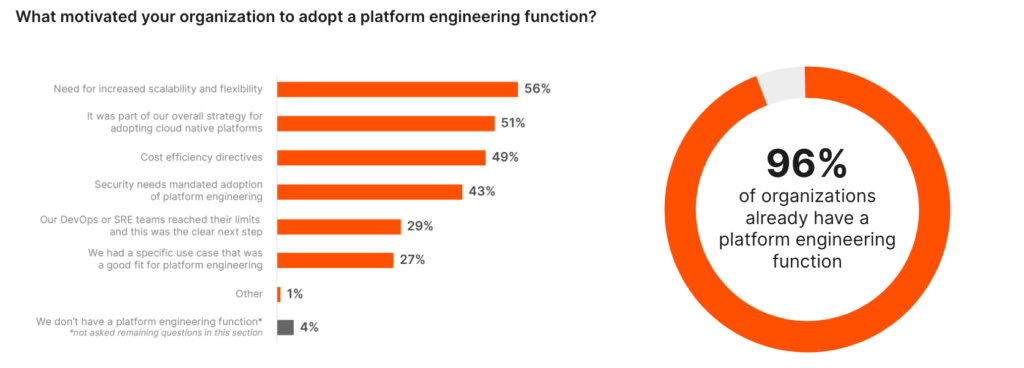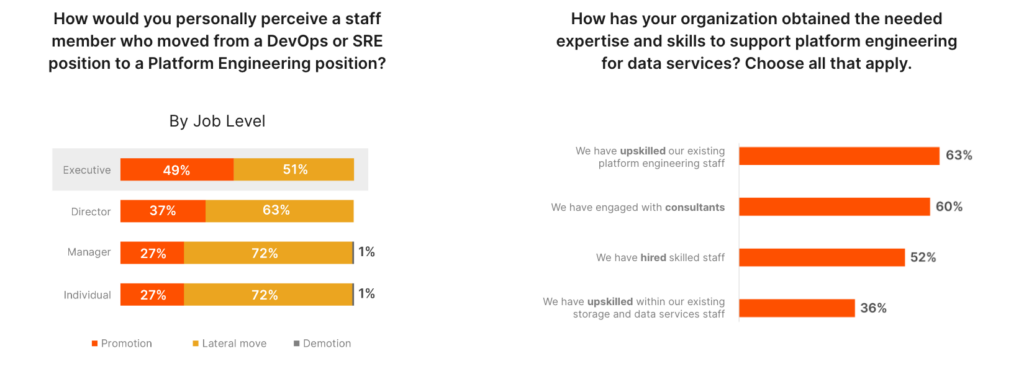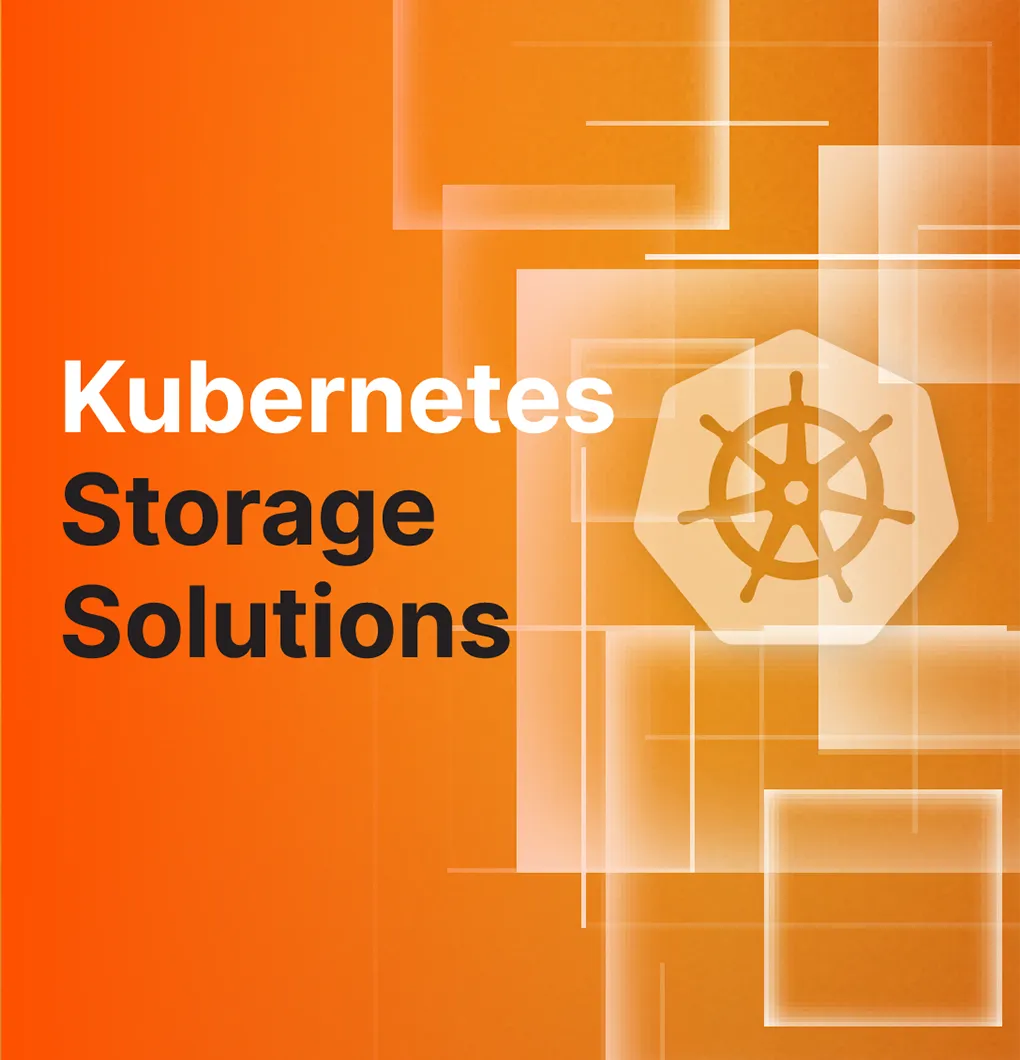Development teams are more agile than ever, developing and deploying new applications at the speed required to be competitive in increasingly more saturated markets. One of the ways developers have become more agile is through adopting cloud native technologies like containers and Kubernetes, which offer a lightweight and dynamic infrastructure for faster application development.
Although containers are known for being fast and efficient, they are also not simple to manage. Developers may find themselves overwhelmed with the complexity that comes with managing cloud native environments. The result is a poor developer experience that adds to developers’ cognitive load, increasing the information they must process to complete tasks.
Platform engineering was born as a practice to relieve developers from the increasing complexity in managing their platforms. As a result, adoption rates for platform engineering are increasing, especially among organizations containerizing their workloads. Gartner states that “by 2029, more than 80% of enterprises will adopt a centralized platform engineering and operations approach to facilitate DevOps self-service and scaling, from less than 30% in 2023.”
Organizations Everywhere are Adopting Platform Engineering Teams
Portworx by Pure Storage partnered with Dimensional Research to survey over 500 Kubernetes experts on data trends in their cloud native environments. The Voice of Kubernetes Experts: The Data Trends Driving the Future of the Enterprise surveyed large to midsize enterprises running data on Kubernetes to understand cloud native trends across several categories, including investment in cloud native platforms and platform engineering.

In the survey, 96% of organizations already have a platform engineering team. These organizations understand the value of platform engineering and have invested in those teams accordingly.
Platform engineering plays a key role in their vision for a cloud native future by enabling developers to focus on what they do best — building applications. Without a platform engineering team, developers often find themselves burdened with increased cognitive load that lowers their productivity.
Usually, cloud native projects start small, allowing individual developer teams to choose their preferred tools and environments for these small projects. However, as they grow in scale and scope across multiple developer teams, this creates a vast tooling sprawl that can quickly become unmanageable. Further, developers must also manage their underlying infrastructure, and they may not be equipped or have the bandwidth to handle the complexity of managing modern workloads without impacting their application development cycles.
Platform engineers provide developers with a centralized internal development platform (IDP) that caters to the entire development team’s needs. If an IDP is crafted well, it will solve common problems across teams and create “golden paths” for developers, simplifying their workflows, so they can concentrate on developing applications. In fact, 56% of organizations adopted platform engineering to meet the need for increased scalability and flexibility.
Executives are Investing in their Platform Engineering Teams
Platform engineers are highly valued team members. Not only do they enable developers to concentrate on developing applications, but they also provide a single, centralized platform that solves many developer problems, so they can work at speed.
One of the most interesting findings from the survey is that executives are far more likely than individual contributors to view a move to platform engineering as a promotion.

It’s no surprise then that executives are also willing to put their money where their mouth is. Because they see platform engineering as valuable, they are willing to invest in upskilling existing staff (63%), paying consultants (60%) or hiring dedicated platform engineering staff (52%).
Platform engineering has proven to be both a key to cloud native modernization and a worthwhile investment for enterprises. Although “platform engineer” may not be a common job title yet — 82% agreed that platform engineer is a function rather than a job title — engineers looking to play a pivotal role in their company’s future would be wise to align themselves into these roles.
Essential Platform Engineering Features for Container Data Management
There are many considerations for platform engineers building an IDP, especially for those running persistent data in cloud native environments. Running stateful workloads in containers requires a thoughtful approach to data management to empower developers as they grow their cloud native footprints with increasingly complex and mission-critical applications.
Mission-critical applications need to be built on a scalable, cloud native platform that can provide the enterprise-grade support necessary for data management. Low developer productivity is only one of the risks for enterprises without an adequate cloud native platform. Others include high infrastructure costs due to vendor lock-in or poorly provisioned storage, application or service outages, and data loss.
Here are some of the enterprise-grade features a platform engineer should consider for managing data in their cloud native platforms:
- High-performance storage: Storage should never be a bottleneck for developers, especially as their applications scale. Automating storage processes like capacity management ensures you’re never under- or over-provisioning storage, so it is always available when needed without the high cost of over-provisioning.
- Data resilience: The more critical the application, the more important it is that it suffers little to no data loss or downtime. This makes it essential to employ data protection in the form of backup and restore, as well as disaster recovery policies that include synchronous and asynchronous disaster recovery.
- Simplified operations: Cloud native environments are often hybrid and multicloud to take advantage of their full benefits and avoid vendor lock-in. However, the differences between environments can be difficult to manage, so an ideal cloud native platform will provide centralized management that abstracts away those differences and offers a self-service platform for developers.
Platform engineers, especially those running persistent data in containerized environments, should keep these considerations in mind. Data management is a key part of any successful IDP that empowers developers to work faster and smarter.
Learn more about how Portworx by Pure Storage can help provide a container data management platform for any IDP by reading “Building a resilient, enterprise grade internal developer platform with Portworx.” Learn more about the findings from The Voice of Kubernetes Experts Report by downloading a copy today!
This article was originally posted on the New Stack.
Share
Subscribe for Updates
About Us
Portworx is the leader in cloud native storage for containers.
Thanks for subscribing!
Janet Wi
Senior Product Marketing Manager
Managing Data on Kubernetes (DoK): Solving the Underlying Challenges






